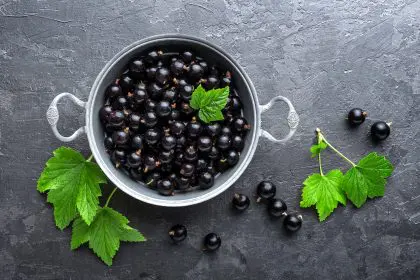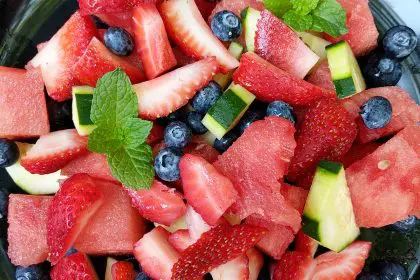Protein bars line grocery store shelves with promises of convenient nutrition, but many contain hidden sugars, artificial ingredients, and preservatives that your body doesn’t need. What if you could get more protein from delicious whole foods that also deliver essential vitamins, minerals, and other nutrients your body craves?
The truth is, countless everyday foods pack more protein punch than those expensive wrapped bars. These natural alternatives not only provide superior nutrition but often taste better and cost less per serving. Plus, whole foods come with additional benefits like fiber, healthy fats, and antioxidants that processed bars simply can’t match.
Whether you’re looking to build muscle, lose weight, or simply maintain steady energy throughout the day, these 17 protein powerhouses will keep you satisfied longer while nourishing your body with real nutrition. From creamy dairy options to plant-based favorites, there’s something here for every taste preference and dietary need.
1. Homemade protein shakes pack maximum power
Creating your own protein shake gives you complete control over ingredients while delivering concentrated nutrition in every sip. By blending quality whey protein powder with wholesome additions like frozen berries and natural nut butter, you create a customized powerhouse that far exceeds typical protein bars.
The beauty of homemade shakes lies in their versatility. Add spinach for extra vitamins without changing the taste, include chia seeds for omega-3 fatty acids, or blend in oats for sustained energy. This flexibility allows you to tailor each shake to your specific nutritional goals and flavor preferences.
Unlike protein bars that often contain artificial flavors and preservatives, your homemade creation uses real ingredients you can pronounce. The protein content easily surpasses most bars, while the fresh ingredients provide enzymes and nutrients that processing destroys.
2. Cottage cheese delivers creamy satisfaction
This humble dairy product packs an impressive 25 grams of protein per cup, making it one of the most protein-dense foods available. Beyond its protein content, cottage cheese provides essential B12 for energy metabolism, calcium for strong bones, and selenium for immune function.
The slow-digesting casein protein in cottage cheese makes it particularly valuable for maintaining steady amino acid levels in your bloodstream. This makes it an excellent choice before bed or between meals when you need sustained nourishment.
Modern cottage cheese varieties come in different textures and fat contents, allowing you to choose options that match your preferences. Pair it with fresh fruit for natural sweetness, or add herbs and vegetables for a savory twist that transforms this simple food into a gourmet experience.
3. Greek yogurt transforms breakfast and snacks
With 23 grams of protein per cup, Greek yogurt delivers more than double the protein found in regular yogurt. The straining process that creates Greek yogurt removes excess whey, concentrating both protein and flavor while maintaining beneficial probiotics for digestive health.
The calcium content in Greek yogurt supports both bone health and proper muscle function, making it particularly valuable for active individuals. Its creamy texture and tangy flavor make it enjoyable on its own or as a base for both sweet and savory preparations.
Choose plain Greek yogurt to avoid added sugars, then customize it with your favorite toppings. Fresh berries add antioxidants, nuts contribute healthy fats, and a drizzle of honey provides natural sweetness that beats artificial alternatives found in processed bars.
4. Canned tuna offers convenient ocean nutrition
A single can of tuna delivers an impressive 40.6 grams of protein along with heart-healthy omega-3 fatty acids, making it one of the most protein-dense foods you can find. This affordable option provides essential vitamins and minerals while offering incredible convenience for busy lifestyles.
The omega-3 fats in tuna support brain function, reduce inflammation, and promote cardiovascular health – benefits you won’t find in typical protein bars. Additionally, tuna provides selenium, vitamin D, and B vitamins that support energy production and immune function.
Choose tuna packed in water rather than oil to maximize protein while minimizing unnecessary calories. Mix it with avocado for healthy fats, add it to whole grain crackers for sustained energy, or incorporate it into salads for a complete meal that satisfies hunger for hours.
5. Edamame brings plant-based protein power
These young soybeans provide 18.4 grams of protein per cup while delivering substantial fiber for digestive health and blood sugar stability. Unlike many plant proteins, edamame contains all essential amino acids, making it a complete protein source comparable to animal products.
The fiber content in edamame helps slow digestion, leading to steadier blood sugar levels and longer-lasting satiety. This combination of protein and fiber makes edamame particularly effective for weight management and energy stability throughout the day.
Frozen edamame offers year-round convenience and can be quickly steamed as a snack or added to salads, stir-fries, and grain bowls. The mild, slightly sweet flavor appeals to most palates and pairs well with various seasonings and preparations.
6. Roasted chickpeas create crunchy satisfaction
Transform ordinary chickpeas into a protein-rich snack that delivers 14.5 grams of protein per cup along with satisfying crunch and portability. Roasted chickpeas provide fiber, magnesium, and folate while offering endless flavor possibilities through different seasonings and spices.
The combination of protein and complex carbohydrates in chickpeas provides sustained energy without the blood sugar spikes associated with many processed snacks. Their fiber content promotes digestive health while helping you feel full and satisfied between meals.
Making roasted chickpeas at home allows you to control sodium content and experiment with flavors like curry powder, paprika, or garlic. Store them in airtight containers for grab-and-go convenience that rivals any packaged protein bar.
7. Collagen peptides boost protein anywhere
These flavorless, easily dissolvable powders provide 18 grams of protein per 20-gram scoop and can be mixed into virtually any liquid or soft food. Collagen peptides offer unique amino acids that support skin, joint, and bone health while contributing to your daily protein goals.
Unlike other protein powders that can alter taste and texture, collagen peptides dissolve completely without changing the flavor or consistency of your food. This makes them perfect for boosting protein content in coffee, smoothies, oatmeal, or even soups and sauces.
The amino acid profile in collagen differs from other proteins, providing glycine, proline, and hydroxyproline that specifically support connective tissue health. These benefits extend beyond basic nutrition to support active lifestyles and healthy aging.
8. Chicken breast reigns as protein champion
Four ounces of chicken breast deliver 26 grams of high-quality complete protein with all essential amino acids in optimal ratios for human nutrition. This lean protein source provides B vitamins for energy metabolism while remaining versatile enough for countless preparations.
The biological value of chicken protein ranks among the highest of all foods, meaning your body can efficiently use nearly all the protein it provides. This efficiency makes chicken breast particularly valuable for muscle building, recovery, and maintenance.
Batch cooking chicken breast on weekends provides protein-rich options throughout the week. Slice it for salads, dice it for grain bowls, or shred it for quick additions to soups and wraps that transform simple meals into protein powerhouses.
9. Lentils deliver plant protein plus fiber
One cup of cooked lentils provides 17.9 grams of protein along with substantial fiber, folate, and iron. This combination supports sustained energy, healthy digestion, and proper blood formation while offering budget-friendly nutrition that stretches meal budgets.
The fiber in lentils slows digestion and helps stabilize blood sugar levels, preventing the energy crashes associated with processed snacks. This makes lentils particularly valuable for maintaining steady energy throughout busy days.
Lentils cook quickly compared to other legumes and don’t require pre-soaking, making them convenient for weeknight meals. Add them to salads, soups, and grain dishes for protein boosts that complement various flavors and cuisines.
10. Shrimp provides lean ocean protein
A 3-ounce serving of shrimp contains 20.4 grams of protein while remaining extremely low in calories and saturated fat. This shellfish also provides vitamin B12 for energy metabolism and selenium for antioxidant protection.
Shrimp cooks quickly and absorbs flavors well, making it perfect for fast, protein-rich meals. Its mild taste appeals to most palates while providing restaurant-quality nutrition at home.
Keep frozen shrimp on hand for protein emergencies. They thaw quickly under cold water and can be added to salads, pasta dishes, or stir-fries for instant protein boosts that transform simple meals into satisfying, nutritious options.
11. Canned salmon offers omega-3 richness
Each 3-ounce serving of canned salmon delivers 19.6 grams of protein along with heart-healthy omega-3 fatty acids that support brain function and reduce inflammation. This affordable option provides nutrition comparable to fresh fish at a fraction of the cost.
The omega-3 content in salmon supports cognitive function, mood regulation, and cardiovascular health – benefits that extend far beyond basic protein needs. Additionally, salmon provides vitamin D, which many people lack, especially during winter months.
Canned salmon works well in salads, grain bowls, and pasta dishes where its rich flavor complements other ingredients. Choose wild-caught varieties when possible for optimal omega-3 content and fewer contaminants.
12. Eggs offer complete convenient nutrition
Two large eggs provide 12.5 grams of complete protein along with choline for brain health and lutein for eye protection. This affordable protein source offers incredible versatility and can be prepared in countless ways to prevent boredom.
The protein in eggs contains all essential amino acids in ideal proportions for human nutrition. Additionally, eggs provide B vitamins, selenium, and healthy fats that support various bodily functions beyond basic protein needs.
Hard-boil eggs in advance for grab-and-go protein that pairs well with fruit, vegetables, or whole grain crackers. Their portability and shelf stability make them ideal for travel, work, or any situation where convenient protein is needed.
13. Seitan satisfies plant-based protein needs
This wheat-based protein source provides 15 grams of protein per 3-ounce serving while offering a meaty texture that satisfies cravings for substantial food. Seitan absorbs flavors well and can be seasoned to complement various cuisines and preparations.
Unlike many plant proteins, seitan provides a concentrated protein source without significant amounts of carbohydrates or fats. This makes it particularly valuable for people following plant-based diets who need efficient protein sources.
Seitan can be grilled, sautéed, or added to stews and stir-fries where its texture mimics meat while providing plant-based nutrition. Store-bought versions offer convenience, while homemade seitan allows complete control over ingredients and flavors.
14. Black beans boost fiber and protein together
One cup of black beans delivers 15.2 grams of protein along with substantial fiber, folate, and antioxidants. This combination supports digestive health, stable blood sugar, and cardiovascular wellness while providing affordable, shelf-stable nutrition.
The fiber in black beans promotes healthy gut bacteria while slowing digestion to provide sustained energy. This makes them particularly valuable for weight management and blood sugar control.
Canned black beans offer convenience for quick meals, while dried beans provide budget savings for batch cooking. Add them to salads, grain bowls, soups, and Mexican-inspired dishes for protein boosts that complement various flavors.
15. Tempeh ferments into protein gold
This fermented soybean product provides 19.9 grams of protein per 100-gram serving along with probiotics for digestive health. The fermentation process creates a nutty flavor and firm texture that works well in various preparations.
Fermented foods like tempeh support gut health through beneficial bacteria while providing easily digestible protein. This combination makes tempeh particularly valuable for people with sensitive digestion who struggle with other protein sources.
Tempeh can be marinated, grilled, crumbled into dishes, or sliced for sandwiches. Its firm texture holds up well in cooking while absorbing flavors from marinades and seasonings.
16. Turkey jerky travels well with protein
Each ounce of turkey jerky provides 13 grams of protein in a portable, shelf-stable form that requires no preparation or refrigeration. This makes it ideal for travel, hiking, or any situation where convenient protein is essential.
Quality turkey jerky contains minimal ingredients compared to protein bars, often including just turkey, spices, and natural preservatives. This simplicity provides clean protein without artificial additives or excessive processing.
Choose jerky with lower sodium content when possible, and pair it with fresh fruit or vegetables for balanced nutrition. The savory flavor satisfies cravings for substantial food while providing steady energy.
17. Protein oats elevate breakfast nutrition
Specially formulated protein oats contain 50% more protein than regular oats while maintaining the fiber and complex carbohydrates that make oatmeal a breakfast staple. This combination provides sustained energy throughout busy mornings.
The additional protein in these oats helps stabilize blood sugar and promotes satiety, preventing mid-morning energy crashes and snack cravings. Top them with Greek yogurt, nuts, or seeds for even more protein and varied textures.
Overnight oats prepared with protein varieties create convenient grab-and-go breakfasts that require no morning preparation. Add fruit, spices, or nut butters for flavor variety that keeps this healthy option interesting.
Making the switch from bars to real food
These 17 protein-rich alternatives offer superior nutrition, better taste, and often lower costs compared to processed protein bars. By incorporating variety into your protein choices, you’ll enjoy more satisfying meals while nourishing your body with essential nutrients that support optimal health and energy.
The key to success lies in preparation and planning. Keep several of these options readily available so you always have protein-rich choices when hunger strikes. Your body will thank you for choosing real food over processed alternatives.












